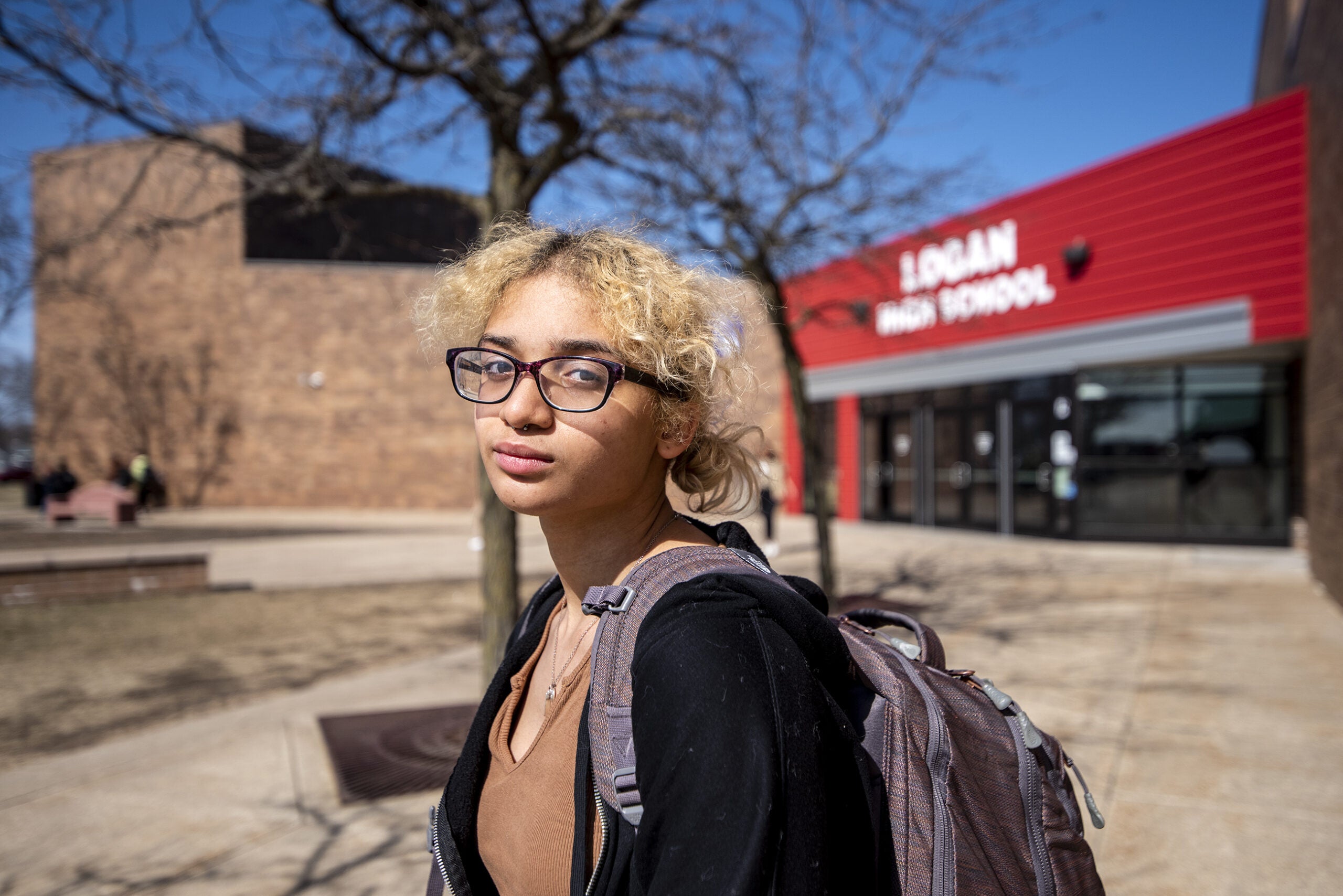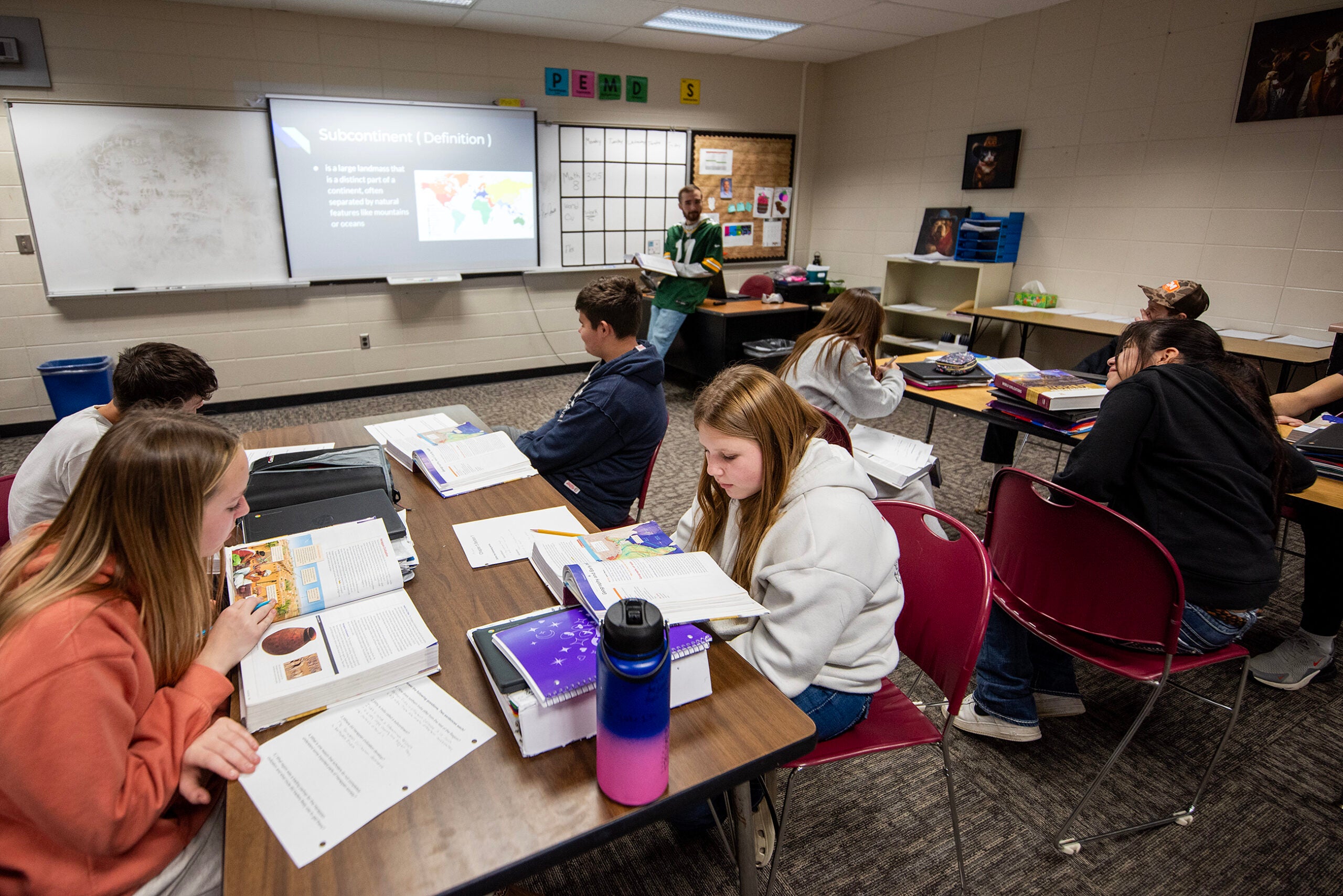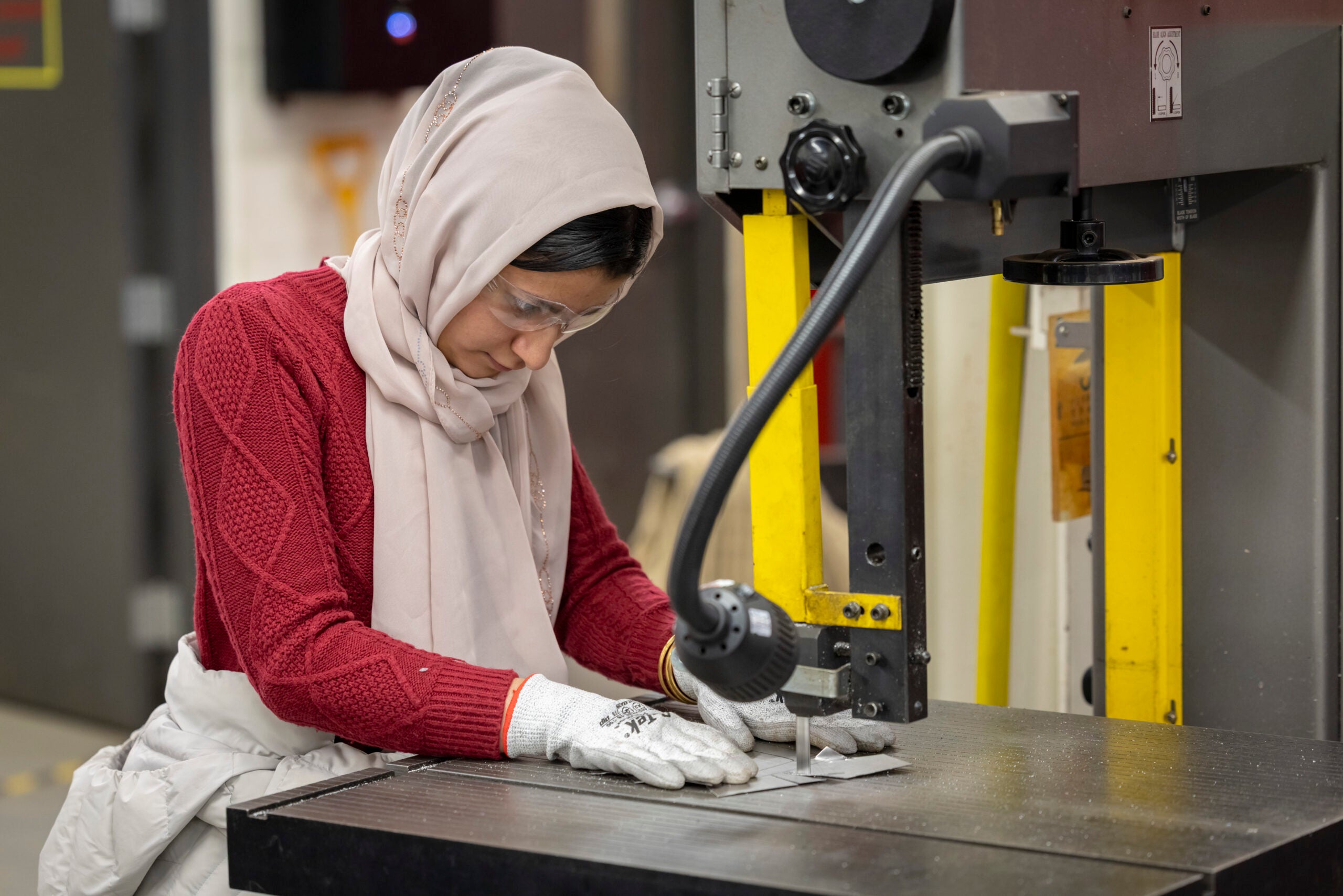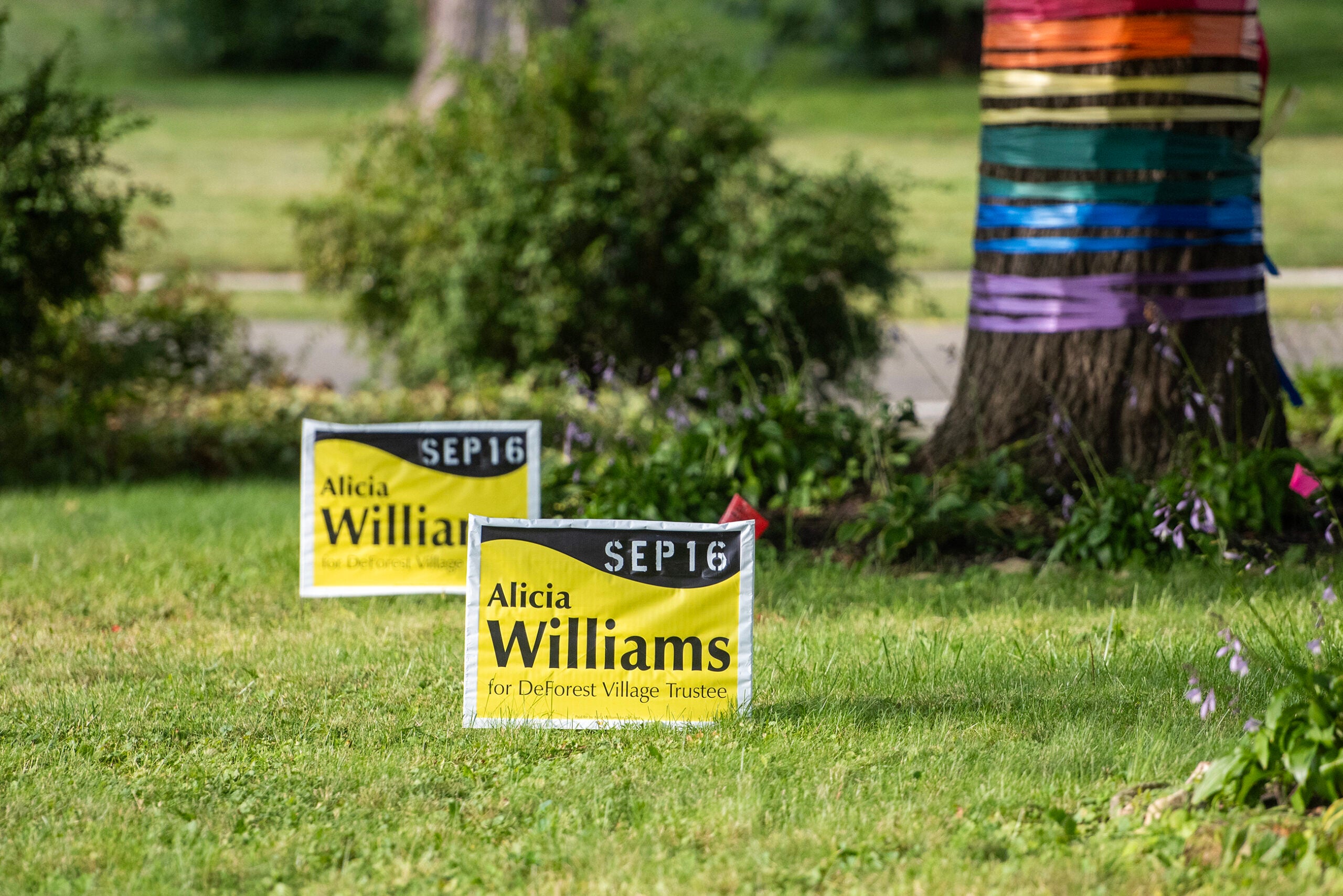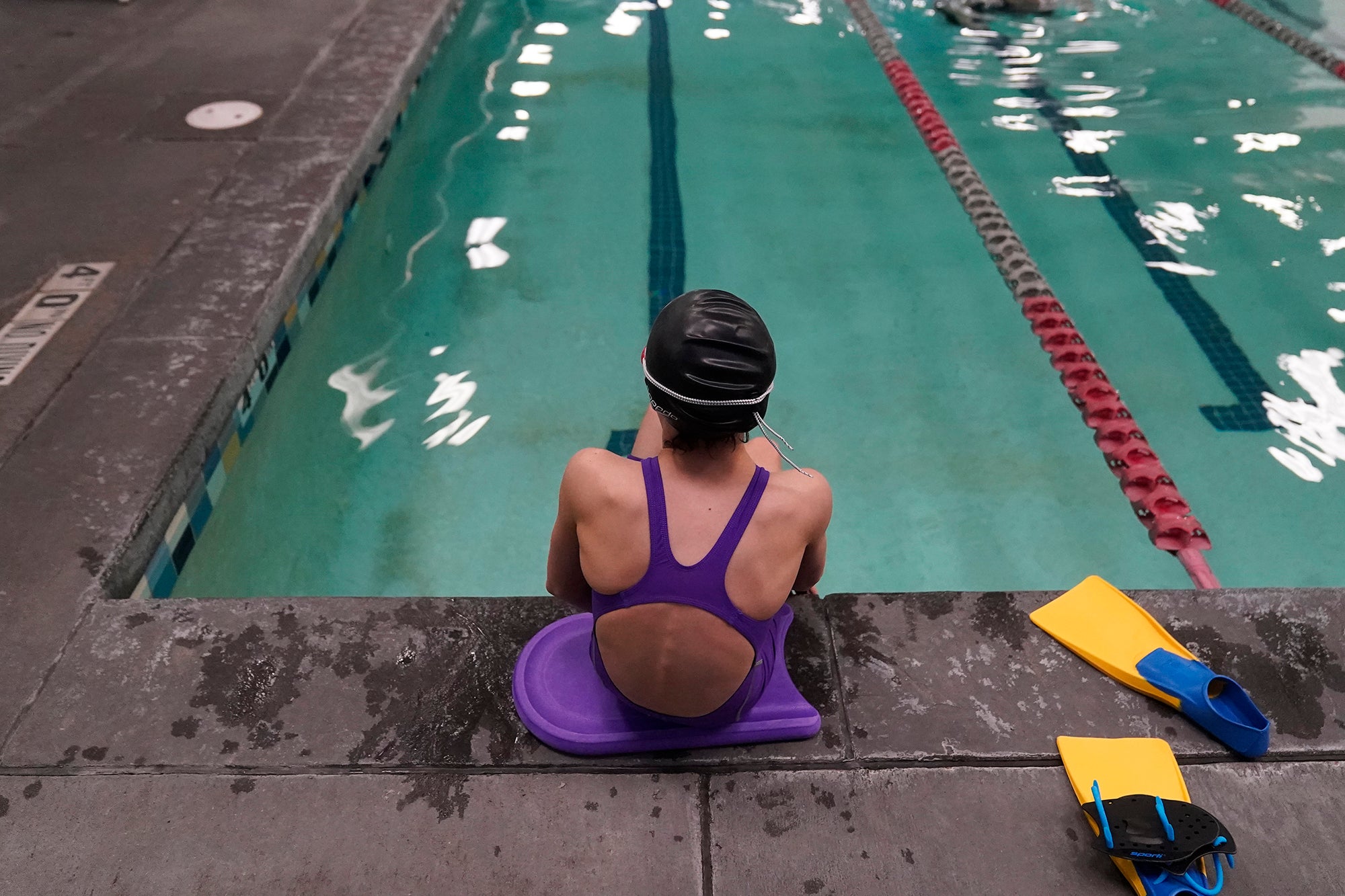Caylan Adams’ first experience with lobbying her local school board came after participating in racial justice protests in the summer of 2020 sparked her interest in political action.
In her second-ever protest, she marched with a crowd from Riverside Park in La Crosse to the local city hall. She got to lead some of the chants of “No justice, no peace,” and said the experience felt empowering, and that it showed her how she could make a difference. When the protests died down, she wanted to stay involved in her community. But Caylan, a sophomore at Logan High School, is too young to vote in Tuesday’s election.
“The only thing we can really do is just say what we need, and then hope it will be taken into consideration,” she said.
News with a little more humanity
WPR’s “Wisconsin Today” newsletter keeps you connected to the state you love without feeling overwhelmed. No paywall. No agenda. No corporate filter.
Last year, Adams got involved with the youth advocacy group Leaders Igniting Transformation, which has hosted forums with school board candidates and worked to raise awareness of the issues students think are most important. She’s now part of a group of young people across Wisconsin who are finding ways to participate in their local school board races, despite the fact that the vast majority of students aren’t yet eligible to vote.
“That’s probably always a concern of students, is a lot of times that they just don’t feel heard by adults,” said Allie Schlicht, a junior at La Crosse’s Central High School who’s also involved with LIT. “That is something that I am looking for in a school board candidate, is somebody who would listen to students. We can’t vote, but we’re able to hold these student forums to understand, and maybe be able to advocate to the adults in our own lives to make those changes.”
About a third of the seats on Wisconsin school boards are up for election on Tuesday. School board elections, like most of Wisconsin’s nonpartisan April races, tend to have low turnout — about one-fourth as many eligible voters cast ballots in spring elections as in the higher-profile fall elections, when Wisconsinites vote for their president, governor and representatives in Congress.
‘Just knowing that I could make a change with my own voice’
People’s reasons to run for school board seats vary, but across the board for those who serve, salaries are low, and meetings can stretch on for hours. More recently, too, school board members have had to contend with threats and verbal harassment as tensions have run high over COVID-19 and race and gender issues. Still, students said that care for schools doesn’t always translate to actively seeking out student input.
Allie said students at Central High School held a meeting last semester with a few school board members and district administrators to discuss student concerns around mental health.
“A lot of the feedback we heard from that was, there were resources that could have possibly been made available, but they weren’t aware that students wanted them, or they weren’t really sure how to communicate with the students who need those resources,” she said. “There was that disconnect, and the lost time where they weren’t able to connect with students.”
By opening up those lines of communication, the La Crosse students said they were able to see some of their concerns translated into action — the school board earmarked about $100,000 of their federal relief funds specifically for mental health resources in response to student feedback.
“That’s what really sparked my involvement with the school board, was just knowing that I could make a change with my own voice,” Caylan said.
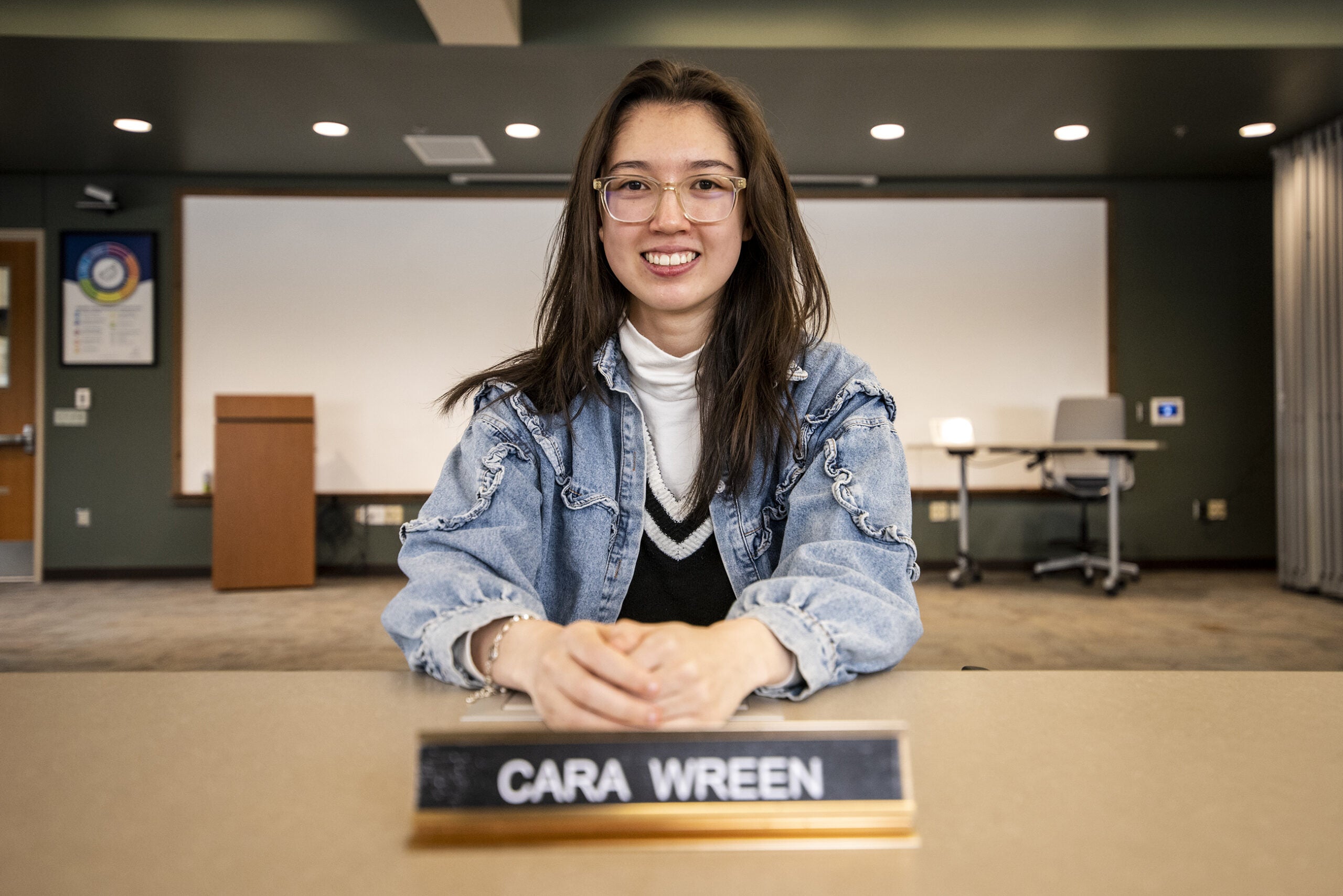
Some school boards give students a seat at the table
Some Wisconsin school boards, in Sun Prairie, Menomonee Falls, Howard-Suamico and other districts, have two non-voting seats for high school students. The high schoolers who join the board can participate in discussions and weigh in to offer a student perspective.
Cara Wreen, a junior at Bay Port High School in Green Bay, joined the Howard-Suamico school board last year for a two-year term.
“Most students don’t really know about the school board, and they’re kind of the ones that are most important to high school because they directly influence our policies,” she said.
Cara herself said she wasn’t very aware of the school board’s role until the pandemic put boards in the spotlight — they made most of the decisions around masks, quarantine protocols, learning modes and other COVID-19 precautions. Those have been a defining part of her first year.
“You could physically see the divide in the community, because some people were wearing masks, and they were on one side of the auditorium, and then there’s a whole bunch of other people without masks, and they were on the other side of the auditorium,” she said. “It was just very, very fiery school (board) meetings since around when I joined, and being part of that just gives me more awareness about what’s going on in my community.”
‘A lot of student concerns get lost in the back-and-forth attacking’
Although school boards’ decisions, particularly about the annual budget, have a lot of impact on students and the community, they’ve received much more scrutiny — and pushback — in the last two years. Rohan Gala, a senior at Bay Port who holds the other student seat on Howard-Suamico’s board, said that’s translated into higher turnout at board meetings. Now, 30 or 40 community members come to speak, when there used to be just a few.
“I think that the nationalization of school board topics has led to increased interest in school boards,” Rohan said. “I don’t think we’re going to get away from this — while I would like to see a lessening of tensions within the school board, I also don’t think that that could ever happen.”
Cara said she’s also seen that play out in the school board’s elections. She said more candidates this cycle seem to be aligning with more partisan political platforms, and she’s seen some candidates running on a platform of parental rights.
“There’s a lot more to the school board than just national issues — there’s policies, there’s talking with the people of our community and partnership and funding,” she said. “Really, this is about students, from elementary school to high school, and as a student, I just don’t want the board to constantly have petty fights over things that really aren’t about students.”
The students at Howard-Suamico and La Crosse said recent national hot-button issues like how race is taught in schools, whether to remove library books and policies around equity and LGBTQ+ issues have surfaced in their local races. They said they’re frustrated when it takes away from other conversations.
“A lot of student concerns get lost in the back-and-forth attacking that happens in a lot of adult conversations,” said Allie, the La Crosse junior. “It would be better if we take a step back from what is best for my child, and what is best for my political views, really kind of trying to take it back and depoliticize it again, and say, ‘How do we help our kids succeed in the best way that they can, and succeed in a way that when they get older, they can make their best, most informed decisions about the world around them?’”
Even without the ability to vote, student interest is up
A handful of cities have lowered the voting age for school board elections, allowing more students to weigh in on their board representatives. In 2016, Berkeley, California passed a measure allowing teens 16 and up to vote in their local school board elections, and neighboring Oakland followed suit in 2020.
Allie said she’d love to see students able to vote in La Crosse’s elections. She thinks that might change people’s motivation for running for school boards, as well.
“I think a lot of the candidates would be focusing their campaign more on reaching those students and really seeing what they wanted,” she said. “They most likely also would be focusing their campaign strategies toward addressing the problems that students feel most concerned about.”
Cara, in Green Bay, said she’s seen more student engagement in school board elections this cycle. She moderated a conversation with five of the six school board candidates hosted by a political club at her high school, which she said was the first time she remembered a student-led event like that.
“There’s a lot of talk among students like, ‘Hey, did you see that one Facebook group that’s really advocating for one candidate?’” she said. “There’s more word of mouth around the school board this year, because of everyone’s very passionate disagreements over masking and vaccines and books, and all that.”
The students say they’re not likely to be as involved with their local school board politics after they graduate. Cara, for one, said she’s expecting to move away for college, so she’ll be voting in a new city.
“It’s made me so much more passionate and motivated to be part of political processes,” she said. “I just really want to make sure I can convey to others the importance of all these political events, and how they’re impacting us.”
Rohan said he plans to go into the public health field, which requires a lot of the same skills around public communication and responsiveness, coalition-building and, especially recently, weathering public pushback and the politicization of health and safety measures.
Caylan, the La Crosse sophomore, said the racial justice marches she attended with her friends strengthened her political awareness, something she said will last well past her involvement with this year’s elections.
“I don’t see myself ever not getting involved with what people need,” she said. “If you need someone at a protest, I’ll be there, it doesn’t matter how old — I could be 80 years old and still protesting in the streets, I will still be speaking out for people that need the help.”
Wisconsin Public Radio, © Copyright 2026, Board of Regents of the University of Wisconsin System and Wisconsin Educational Communications Board.

